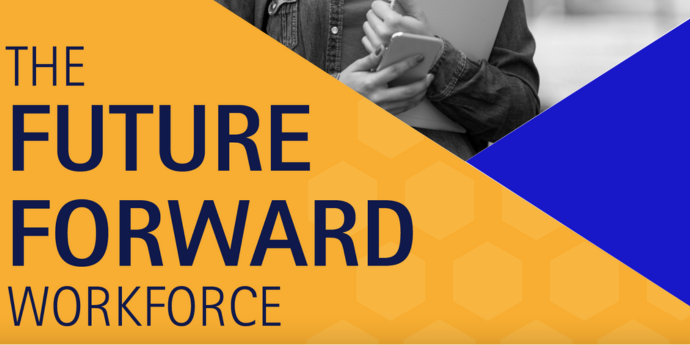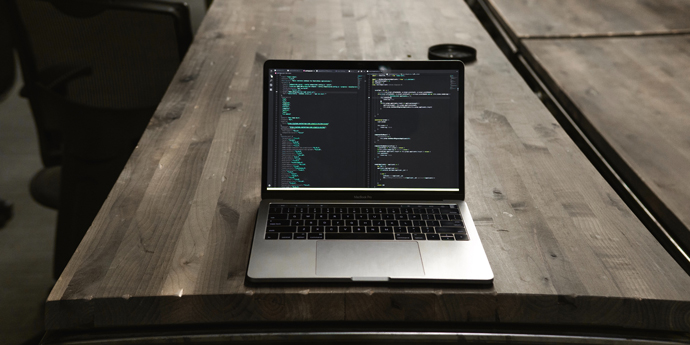Local business Yuppiechef made headlines recently with its sale to Mr Price for about R450 million. Not bad for a company that sold only 11 products (10 of which to family and friends) in its first four months of operating out of a suburban home back in 2006. Yet, one of the defining characteristics of the brand has been its innovative approach to strategy and an innate ability to be agile and responsive to changing circumstances. During the first COVID-19 lockdown in April 2020 in South Africa, Yuppiechef had to find new ways to keep trading, to connect with customers and keep the brand alive.
This is the challenge that businesses and individuals alike have had to face over the past 18 months. The business environment has changed radically; customers are behaving differently, technological requirements and personnel requirements have changed, and operating conditions are radically different. We are now definitively working in the knowledge economy –characterised by the rapid development of ecommerce, online platforms and tools, artificial intelligence (AI), and machine learning (ML) coupled with new working conditions, the use of remote offices and flexible hours and workplaces.
At the same time, we are working under conditions of ever-greater stress. According to some experts, South Africa (like many countries in the world) is experiencing one of the most stressful times in recent history; despite the devastating impacts of COVID-19 on professional and private lives, work must continue to pay the bills. How do you lead a business in such a time? Clearly, you need a special kind of leader – someone able to handle the double disruption of economy and society and still chart a strategic path. “No-one wants to be remembered as the one who made the wrong call at this time,” says decision scientist and convenor of the Strategic Decision Making programme at the UCT GSB, Wayne Borchardt. But he adds, as the stakes get higher and operating environments become more unpredictable, it becomes even harder to make good strategic decisions. To give themselves the best chance of success Borchardt has five tips for leaders and decision-makers working in business today:
1. Let go of the old
The workplace today needs leaders who are communication experts and inspirational motivators able to engage teams and motivate them to be innovative. To do this, leaders need to know how to create a space where innovation can happen. This starts with being able to let go of mindsets that may have worked in the past to create space for new ideas to grow. Team members must feel they have their boss’s backing to rapidly prototype and test new ideas, to try something else to turn things around. Failing fast and failing forward is the name of the game.
2. Lean on your strategy
Business leaders should be careful about using their intuition when making a decision. Unless one is faced with the same decision made many times, under the same conditions, there is a high probability of getting it wrong. We have never faced a global pandemic like COVID-19 before. Given this level of uncertainty, business leaders should not make decisions without relying on strategic decision-making tools and processes, which have been proven to lead to insights that produce better alternatives. Use the tools available to you – probability tools, website experimentation, Google analytics etc. – to gather as much information about your industry as you can.
3. Beware of expert forecasts
Gaining as many facts as possible and modelling what you can is critical for business leaders to avoid falling into another common trap which is to rely solely on what the experts have to say. In a remarkable study by US professor Phil Tetlock, it was found that experts were systematically overconfident, thinking they know more than they do. How often have “experts” gotten it wrong in the past? Remember how many forecasts predicted the UK would not vote for Brexit? Or the initial COVID-19 predictions warning of a fast and deadly onset of the disease similar to the Spanish Flu of 1918?
4. Take account of your own biases
And it is not just the experts we have to watch out for; it’s ourselves as well. Unconscious biases affect many of our decisions and business leaders need to be aware of their own biases. “If you think you don’t have any – ask someone else, as we all struggle to see our own biases,” comments Borchardt. A fascinating article in the Harvard Business Review entitled Why Good Accountants Do Bad Audits shows that amongst other things, people are more willing to be nice to people they know rather than strangers; that’s a bias. Ask yourself do you prefer people who tend to agree with you? Do you think someone from a similar background will have better ideas than someone from another culture?
5. Listen to different voices
Now that you know you are biased, a good way to avoid your falling prey to this is to open yourself to as many differing opinions as possible. Leaders and those tasked with strategic decision making can invest in and surround themselves with people who think differently and come from diverse backgrounds. For one, appoint more women to your teams and in senior positions – not only do studies show they perform better when it comes to leadership skills, but also that the more gender diverse an organisation is, the more productive it is.
The new frontier is already here. We are living it. And many people may not be optimally prepared to deal with it. The best thing to do now is to move rapidly to adjust to what is going on around us, to invest in upskilling ourselves and our employees and establish a learning culture for our organisations to invite a diversity of perspectives and encourage people to remain open-minded, curious, and willing to do things differently. Going forward, leaders that demonstrate flexibility and successfully create a culture of innovation are likely to be those who can lead us through these uncertain times.
Kumeshnee West is the Director of Executive Education at the University of Cape Town’s Graduate School of Business.








































